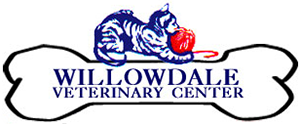Library
-
Testing for FeLV is recommended to detect underlying causes to illness, to screen apparently healthy cats who may have been exposed to the viruses, and to identify carriers of the viruses prior to introducing cats into a household of other cats. Testing protocols are discussed. Vaccination against FeLV will not affect the outcome of a cat already infected with the virus nor will it affect testing.
-
Vitamin B complex injectable is a solution containing multiple forms of Vitamin B, which are used together to prevent or treat Vitamin B deficiencies. These vitamins promote good overall health for your pet and regulate certain processes in the body. Vitamin B complex injectable comes as a solution for injection either under the skin or into the muscle.
-
Vitamin C injectable is a vitamin supplement used as an antioxidant to help treat certain toxicity syndromes or to create a more acidic urine in dogs and cats. It is also used in guinea pigs to treat scurvy. Vitamin C injectable comes as a solution for injection either under the skin or into the muscle. Injections may be given by veterinary personnel or at home by pet owners.
-
Weight-loss programs are not easy, especially when an overweight animal cannot exercise. Veterinary therapeutic diets, automatic feeders, food puzzles, and animal rehabilitation therapy are tools that should be considered for every pet's weight loss program. Pet parents who are motivated to help their overweight dog or cat lose weight should work closely with their veterinary healthcare team to address concerns and discuss ideas for the pet's home environment. The most successful pet owners recruit family and/or friends to support their plans. Patience and persistence are often needed because weight loss doesn't happen quickly.
-
Compounded medications are not approved by federal authorities. They are medications that have been altered to provide more accurate dosing or easier administration. They have not been tested for safety, stability, potency, or efficacy.
-
Palatability refers to how good a pet food or treat tastes, and it is based on the preferences of a dog or cat. Palatability is a combination of how a product smells, tastes, and feels. Pet food companies spend a lot of time and money studying how to improve the palatability of their products. This article addresses several commonly asked questions about the "how", "what", and "why" of making pet foods as tasty as they can be.
-
Wheat gluten + monosodium glutamate (brand name For-Bid) is a food additive commonly used to deter coprophagy (eating stool). Give as directed by your veterinarian. Side effects have not been reported. Do not use concurrently with steroids. If a negative reaction occurs, please call your veterinary clinic.
-
Whipworms are intestinal parasites measuring about 1/4 inch (6 mm) in length. They live in the intestinal tract of cats where they can cause severe irritation. Whipworm infection results in watery diarrhea, weight loss, and general debilitation. Fecal testing will not detect every infection. Whipworm infection in cats is rare in North America but cases appear to be rising.
-
Zinc gluconate (neutralized) topical (brand name Maxi/Guard®Zn7 Derm) is an anti-irritant that may provide relief from the dry skin and itching associated with irritating skin conditions in cats, dogs, and other animals. Zinc gluconate (neutralized) topical comes in gel and liquid spray forms.
